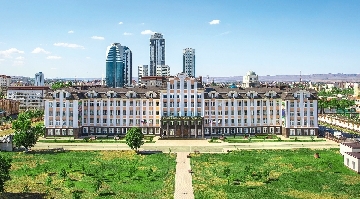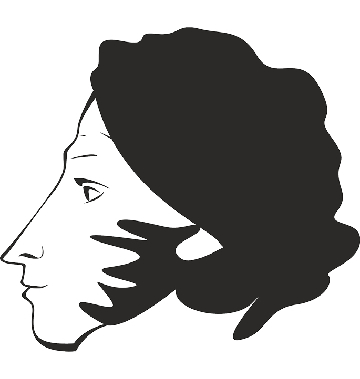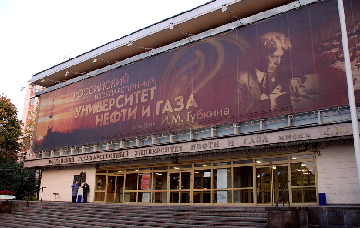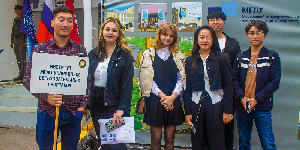Russian-African educational cooperation has a strong common basis laid as far back as Soviet times. You can find graduates of Soviet and Russian universities almost in every African government, at the head of many departments. Today, many Russian universities and scientific centers are also ready to cooperate with Africa. Natalia Krasovskaya, Director of the Center for Public Diplomacy, talks about the efforts to bring together all interested parties.
Russia-Africa: Policy of Rapprochement
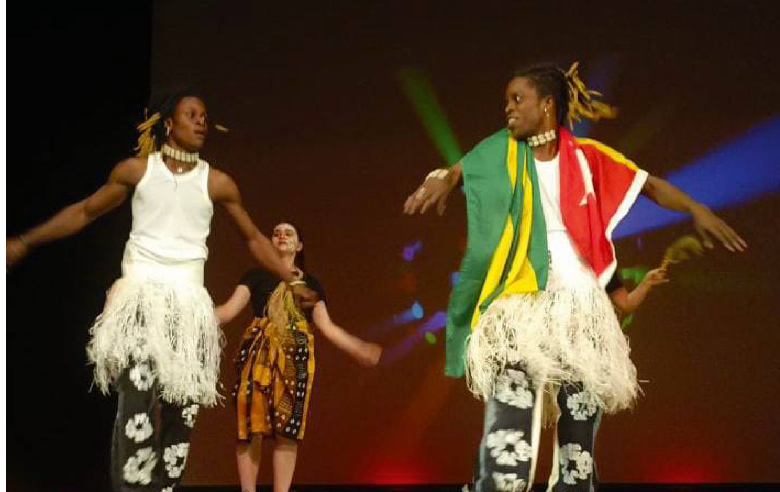
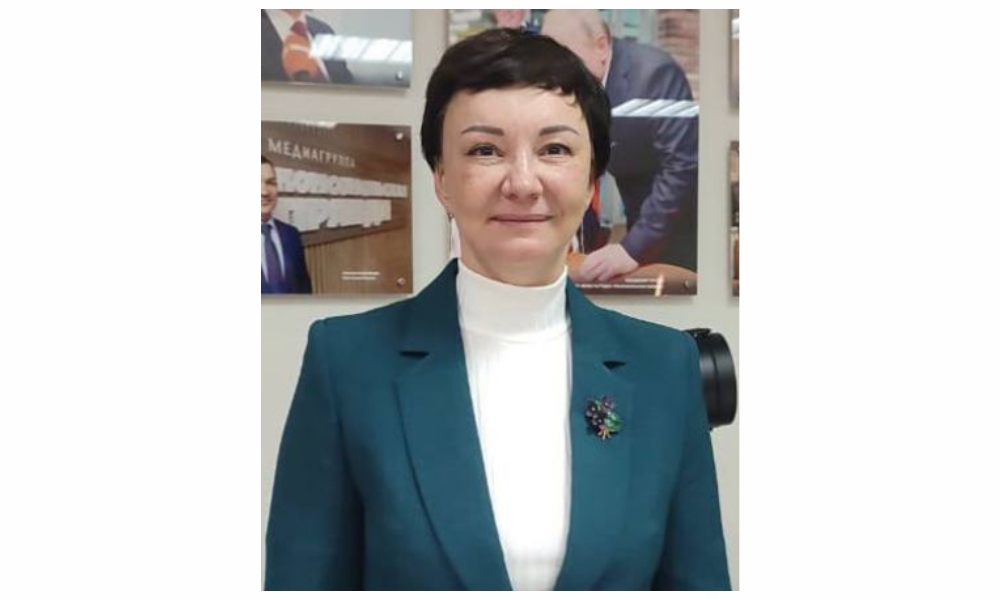
Natalia Krasovskaya, Director of the Center for Public Diplomacy
Education:
- Lomonosov Moscow State University, Geology
- Siberian Independent Institute, Psychology
- Russian Presidential Academy of National Economy and Public Administration, Law
- Moscow Business School, MBA, Management
Academic degree: Candidate of Psychological Sciences
Hobby: foreign languages
Role of Director’s Personality in Project Implementation
The project of opening Russian Houses in West African countries makes me use all the competencies I have acquired during my professional career. Now all my skills help me in completing the tasks I set for myself.
My first education is geology, and the fact that I can speak the same language with specialists in the mining industry, which is a key industry for the economy in the countries we work with, is definitely very helpful.
My good communication skills acquired as part of my second education (psychology) are absolutely invaluable in the project aimed at effective relationship building at different levels – among people, organizations and countries – to get specific results.
My third education is law, and this helps organize all processes in a consistent manner and with the consideration of a host of subtleties in the project with a foreign mission.
So, all these things are jigsaw puzzle pieces that make up a single whole and help us quickly and reliably complete non-trivial tasks we have to face when implementing our Russian Houses project.
If we talk specifically about this project, my strengths are an ability to keep my mind on my goal, focus on the big picture, an ability to think strategically and take into account a host of factors. I am not able to give up, and I try to complete the task, no matter how difficult it may be.
The most important value in my life is to advance as part of the country’s goals, realizing at the same time that what I do is really important and useful. I strive to make all our projects a part of large-scale programs. My second important value is the team. I am not an individualist at all, and it is important for me to feel support from the people who share my values. I cannot definitely imagine my life without work. This complicates the life-work balance issue because my work is my life.
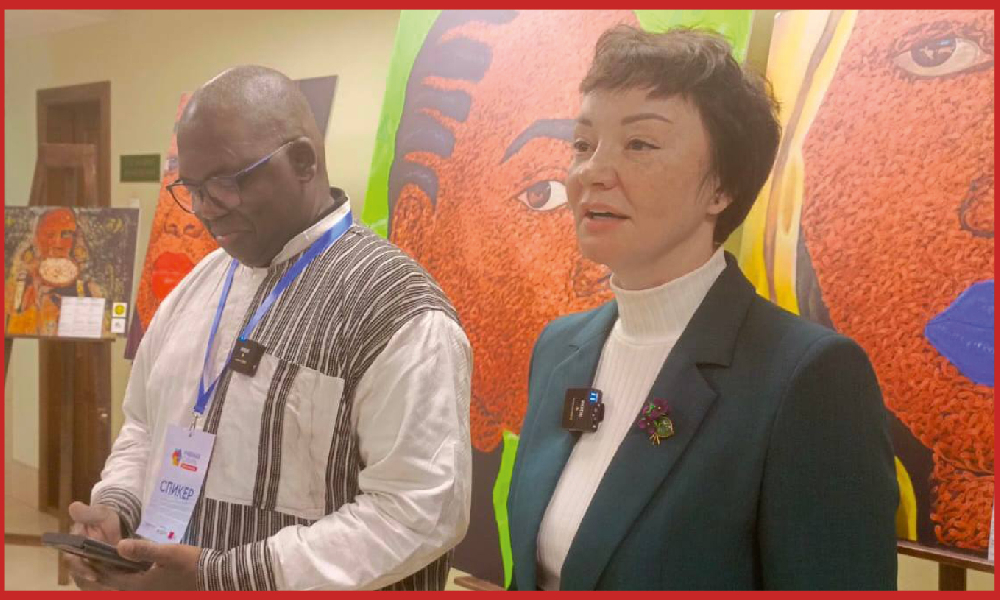
Center for Public Diplomacy
The Center for Public Diplomacy is a non-governmental organization, actively cooperating with official agencies. In particular, we work on opening the partner Russian Houses in West African countries under the agreement with Rossotrudnichestvo. We go beyond the opening of Russian Houses and work in a consistent manner: we establish contacts with relevant ministries and educational organizations and arrange visits of ambassadors and ministers from Sahel countries to Russia. We co-organize Russian-African forums and festivals, exhibitions and conferences (for example, “Africa Days in Siberia”, “Creating the Future Together: Russian-African Cooperation in Personnel Training”, the conference of rectors of African and Russian universities in Moscow, the strategic session “Cooperation between Russia and African Countries in Higher Education in the Changing World”, the international conference “Export of Russian Education to Africa: Challenges and Opportunities:, etc.). These events showed all the thoroughness and seriousness of the launched processes and the parties’ mutual interest, which resulted in fifteen agreements on direct interaction between the universities in Russia and West Africa. The events held in Novosibirsk also familiarized African specialists with the region's educational and scientific potential, which is also of no small importance.
We also work in close cooperation with Russian and African universities and scientific and educational centers. We have concluded a host of important cooperation agreements, co-initiated and coordinated the establishment of the Consortium of Russian Universities for Cooperation with West African Countries. Moreover, our specialists supervise the process of translation of books by African political leaders into Russian or translate these books themselves as well as publish them in Russia. So, it is safe to say that all these things are different facets of our consistent effort to foster rapprochement between Russia and African countries.
With support from Rossotrudnichestvo, the Center for Public Diplomacy has opened the partner Russian Houses in Burkina Faso and Niger. We are also preparing to open Russian Houses in Guinea (Conakry) and Mali. In all these countries, we have already established contacts with the ministries of science and education and culture as well as with the universities’ administration.
The project to create Russian Houses in Africa sets very ambitious goals. Firstly, the population of African countries severely lacks reliable information about Russia. Our objective is to inform the general African public about what is happening in our country now, about our history and culture as well as about the opportunities that Russia offers for its partners. The second goal is to foster promotion of Russian education on the African continent and increase students' motivation so that Russia’s education quotas are filled by well-trained students.
African students, who got an education in Russia, must come back home as competent specialists capable of being actively engaged in the development of national economies and public administration, with a positive attitude towards Russia and focus on effective cooperation with it.
We strive to take our activities to the highest level by getting invaluable state and public support in Russia, involving relevant ministries and state-owned companies in developing “educational order” in Africa, and establishing partner relations with the best universities on both sides. I hope that, besides offering pre-university training programs for applicants, our consortium’s universities will also open their branches and representative offices in African countries in the future.
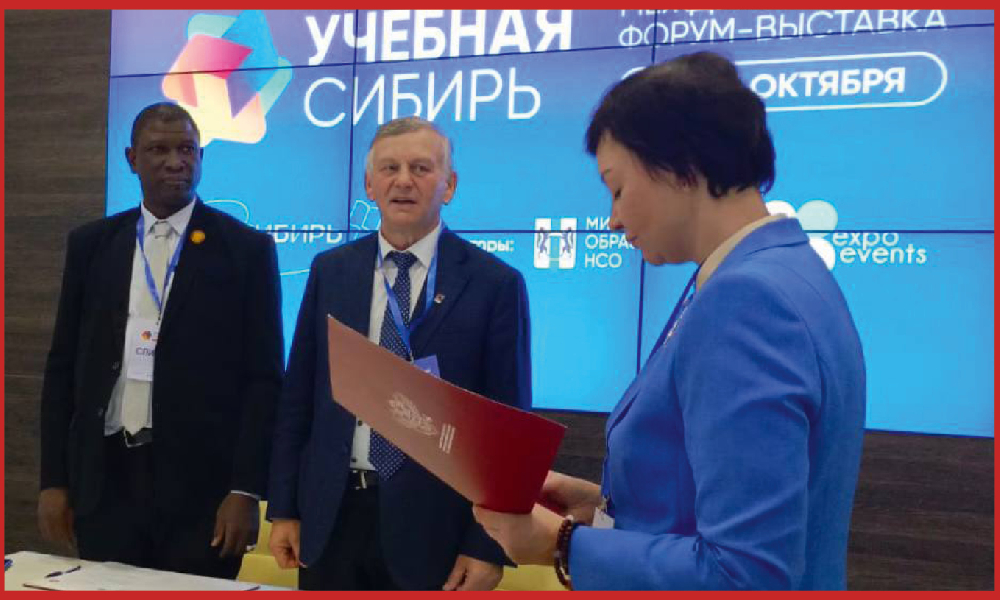
Interest in the Russian Language and Culture
West African countries have an interested and warm attitude towards Russia, partly because there are a lot of graduates of our universities in the governments of these countries. West Africa predictably shows a great interest in the Russian language and culture.
Russian language courses and pre-university training courses preparing African applicants for admission to Russian universities are the calling card of our Russian Houses. Admission and study requirements for the courses at Russian Houses in Africa can vary depending on a specific country, center, and course. In particular, our Russian language courses in Burkina Faso are attended by more than 200 people now.
We do our best to get African young people interested and motivated as well as give them the opportunity to choose the field where they want to fulfill their potential and make progress. We have a lot of work to do, but we are fully ready for it.
The Preparatory Faculty of Novosibirsk State Technical University, which offers Russian language classes as well as mathematics and physics classes, works at the Russian Houses of the Center for Public Diplomacy in Burkina Faso and Niger. Each country has ninety students. Training for IT majors will be provided by the Preparatory Faculty of Kalashnikov Izhevsk State Technical University. We are also preparing to launch preparatory programs in medicine and biology at Novosibirsk State University and Novosibirsk State Agricultural University that include classes in chemistry, biology, and the Russian language. All the subjects are taught in French.
In the future, we plan to launch such programs in all West African countries, where our Russian Houses will be opened. We will also intensify our cooperation with African schools. Many new programs will be targeted at school students.
Russian language programs at our Russian Houses can also vary depending on a particular center and university we work with. As African applicants start studying Russian from scratch, we use French as a mediator language in our classes. And, despite the fact that the Russian language is among the most difficult languages in the world, our African students become very confident Russian speakers.
The education system in Sahel countries requires major reconstruction to meet national needs, and we hope to make the introduction of Russian as a foreign language into school curriculum a part of this reconstruction. This is a tremendous amount of work done in cooperation with the ministries of education and universities. Our consortium of universities to work with West Africa also includes pedagogical universities, so in the future we are sure to launch a targeted course for Russian language teachers who will be able to work at African schools.
The Russian Houses hold events aimed at providing information about Russia and promoting the Russian language. During the first month of work of the Russian House in Burkina Faso, we held three photo exhibitions, two exhibitions with the Russian Geographical Society, a joint exhibition with the Russian Embassy, and an exhibition of Russian ethnic costume. Besides, in Africa we show Russian and Soviet classical and patriotic movies dubbed or subtitled in French.
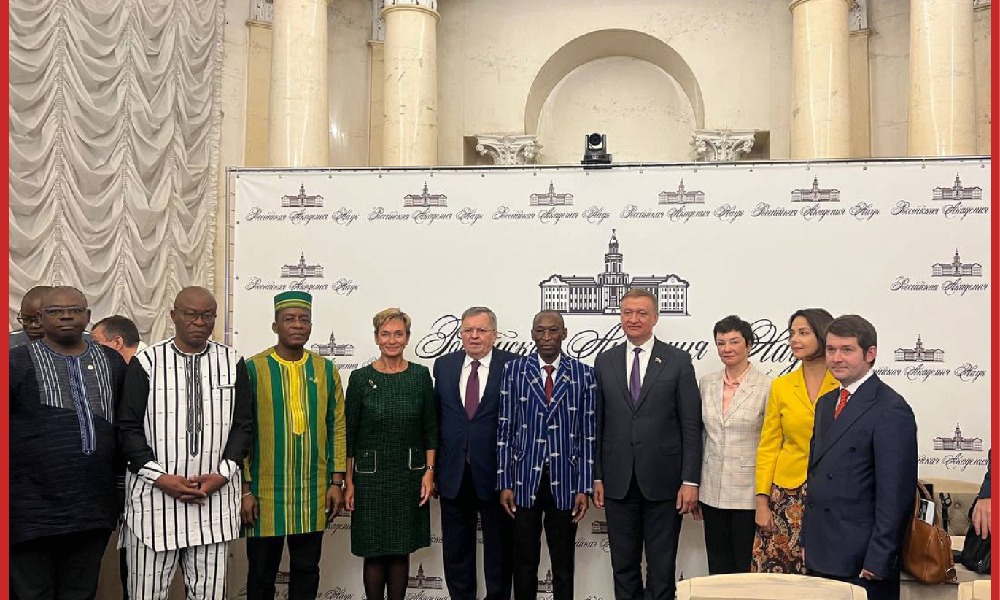
Studying in Russia
According to Rossotrudnichestvo, Russian universities recruit around 6,000 applicants from African countries for free education within the quota every year. Russia's state policy is aimed at a steady increase in the number of quotas for African students. For reference, the number of state-funded places for the 2023/2024 academic year for students from African countries doubled over the first year of implementation of this program at the universities. In the future, our Russian Houses will prepare the lists of African students, who take our courses and apply for quotas, and provide the Russian embassies with this information and the applicants’ characteristics.
According to Head of Rossotrudnichestvo Yevgeny Primakov, approximately 37,000 African students had been studying in Russia by the beginning of summer 2024. Moreover, they often pay their tuition fees themselves.
African students in Russia often choose engineering majors and careers in the energy industry and the oil and gas industry, information technology and communications, economics and management, medicine, and agro-industrial technology. Accordingly, to prepare for admission to these majors, applicants should know not only the Russian language, but also boost their knowledge of mathematics, physics, chemistry, biology, which is what we are trying to ensure.
One of the overarching goals of partner Russian Houses is to provide residents of African countries with information about Russia and its educational opportunities that are almost limitless. Our universities can provide study programs in the most in-demand majors, friendly environment, unique store of knowledge and innovative methods that graduates will be able to adapt and apply in their home countries when they come back. Many Russian universities also offer pre-university training programs for applicants.
African specialists, who got an education or took advanced training courses and undertook internships in Russia, are in demand in their home countries in such key industries as industry and power engineering, medicine and agribusiness, for developing new technologies.
Plans for the Future
We plan to expand an integrated network of Russian Houses in West Africa and promote the Russian language in all formats such as training for school students and applicants and advanced training for Russian language teachers. It is important to remember that around 40% of the African population are school-aged children, so the number of prospective applicants is impressive.
We are going to hold a great number of new events, from large-scale Russian-African forums to master classes, seminars, lectures and exhibitions at our Russian Houses. We will familiarize Africans with Russian literature and history, geography and arts, festivals and cuisine. And, of course, we will continue to represent Russian universities in Africa.
Promotion of Russian education in Africa can provide both parties with new invaluable opportunities as well as long-time and reliable allies. It means that this is work that must be continued in all areas, which is what we are doing at the Center for Public Diplomacy by developing the program of Russian Houses in West Africa. And we still have a lot of work to do.

